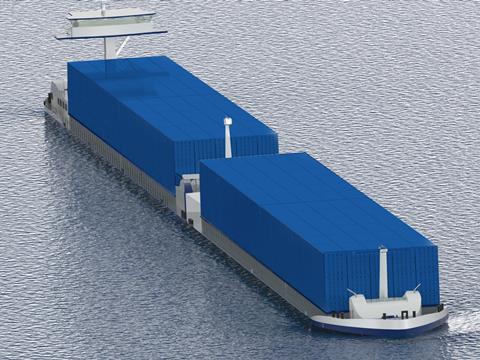The Rhenus Group is progressing with the construction of its fleet of low-emission inland waterway vessels.

The vessels will be powered by a combination of a hydrogen fuel cell, the latest stage VI engines and electric batteries. Two push-barge combinations, each consisting of one motorised vessel, and as many as three barges are currently being constructed and another one is in the planning stage.
The Rhenus Mannheim I+II and the Rhenus Ludwigshafen, which is in the planning stage, will have a fuel cell that uses hydrogen from the outset. The Rhenus Wörth I+II, meanwhile, will be hydrogen-ready and its engines have the potential to be refitted to operate on hydrogen fuel at any time.
This, according to Rhenus, means that the emissions limits of the stage VI engines, which have been installed, are far below those of the stage V technology that is normally used for inland waterway shipping.
Further still, the vessel designs address another challenge of inland water shipping: dry periods that result in shallow water levels. By distributing the weight and using a new kind of propulsion concept, the new vessels can be deployed if the water level is just 1.2 m deep – this means that they can continue operating even during extreme shallow-water phases.
















